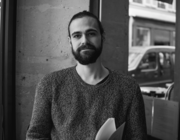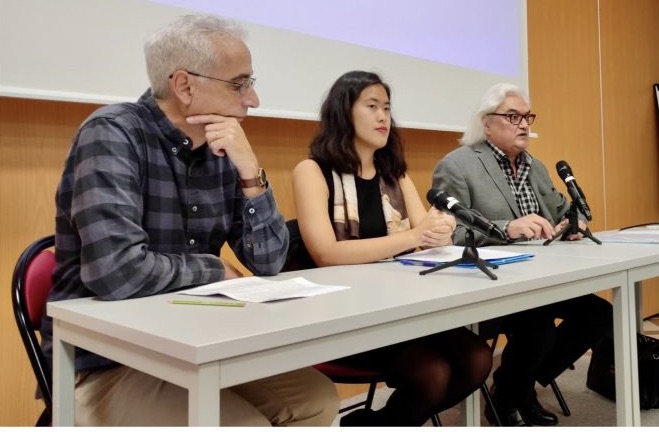Inside Issue 10: New and Forthcoming

As the numerous references in this issue (our 10th!) reveal, interest in the life and thought of Simone Weil appears to be growing at an unprecedented pace. Merely notice our list of new and forthcoming books, upcoming conferences, symposia in journals, scholarly and general interest articles, YouTube postings, podcasts, and dissertations. What explains this? Has our knowledge of Weil become more profound or has her life and legacy become more popularized than ever?
Forthcoming: American Weil Society Colloquy

Journal Symposium on Weil’s Thought

Vol. 25 No. 1 (2023): Simone Weil (1909-1943): Receptions and Actuality. Part I: Weil’s Social and Political Thought
SIMONE WEIL’S SOCIAL AND POLITICAL THOUGHT
- Literature at the service of truth: Simone Weil and ‘L’Enracinement’ E. Jane Doering // 11-33 PDF
- Action, transcendance, incarnation. Pour une lecture unifiée de la pensée politique de S. Weil Emmanuel Gabellieri // 34-55 PDF
- Simone Weils frühes Verständnis des Totalitarismus als existenzielle Bedrohung Ulrich Arnswald // 56-108 PDF
- On the Utopia of The End of Alienation. Hannah Arendt (Mis)reading Simone Weil ̶ and Karl Marx Vicky Iakovou // 109-135 PDF
- Simone Weil and the dangerous Myths of Science and Technology Marta Nunes da Costa // 136-156 PDF
- Like a Fly against a Pane of Glass: Simone Weil in the Context of Contemporary Theories of Suffering Eva-Maria Düringer // 157-175 PDF
- Une tout autre forme d’authenticité. Travail du désir et anthropologie de la médiation chez Simone Weil // Francesca Simeoni // 176-204 PDF
- L’ennui ouvrier dans la pensée de Simone Weil. Cohérence du matériel et du spiritual Judith Bordes // 205-227 PDF
- Thoughtful Labor. Simone Weil on Vocational Education Anouk Zuurmond // 228-247 PDF
Harvard Course on Weil and Arendt
Simone Weil and Hannah Arendt: Work and Politics (Deep Springs College)

PhD (Winter Semester, 2023)
This class brings together two contemporary philosophers and social critics, Simone Weil (1909-1943) and Hannah Arendt (1906-1975), both of whom abhorred the totalitarianisms of their time, reflected on the possibilities of a post-Marxist politics, and theorized the meaning of labour in human life. Weil, a French mystic, ascetic, activist, and philosopher, was deeply dedicated to understanding working-class life and violence in its many forms. Arendt, a German-born philosopher (or rather, as she herself preferred, political theorist), wrote much of her work in the United States during and after the Second World War and offered a wealth of theoretical tools to understand human labour and work as well as freedom and political action.
Our goal will be a “lecture croisée” of these two oeuvres oriented around two major thematics: (1) Forms of human activity and their relation to political life; (2) Marxism and its major nodal points of revolution and freedom. Along the way we will also think about ancient Greece, the tradition of political thought, colonial violence, and our own neoliberal economic reality. Readings are a combination of major works from each author (The Need for Roots and The Human Condition), essays and occasional pieces (e.g. “The Iliad, or the Poem of Force” and “Revolution and Freedom”), as well as contextualizing readings from theorists who inspired or were inspired by Weil or Arendt (Karl Marx, Frantz Fanon, Albert Camus, Danielle Allen).
Related
- Kathryn Lawson & Joshua Livingstone, eds., Hannah Arendt and Simone Weil: Unprecedented Conversations (Bloomsbury Academic, Feb. 22, 2024)
Emily King on Weil’s Notebooks

Recently, Emily King presented at a conference organized by the Association pour l’Étude de la Pensée de Simone Weil to mark the 80th anniversary of the death of a philosopher who has left behind an incredible legacy. Her paper, “L’écriture comme travail,” which will be published in the Cahiers Simone Weil, considers the extent to which we may read Weil’s cryptic notebooks not as mere drafts, but as a form of work. Those present included noted Weil scholars Robert Chenavier and Emmanuel Gabellieri.
New Scholarly Article
- Peter Roberts, “Education and the Ethics of Attention: The Work of Simone Weil,” British Journal of Educational Studies, vol. 71, # 3 (2023)
New Articles
- Richard Colledge, “Guide to the Classics: Simone Weil’s The Need for Roots,” The Conversation (Sept. 4, 2023)
- Justine Toh, “The world is burning. Who can convince the comfortable classes of the radical sacrifices needed?,” The Guardian (Sept. 2023)
- Jennifer Szalai, “How Four Female Philosophers Responded to a Dire Decade,” New York Times (Aug. 2, 2023) (book review)
- Stuart Jeffries, “The Visionaries review – seers who were shaped by the shadow of war,” The Guardian (July 30, 2023) (book review)
Previously Unnoticed Articles
- Christopher Thomas, “‘Silence is Violence’: Simone Weil on the Impossible Demands of Justice,” The Philosophical Salon (Aug. 2020)
- “Juxtapositions: between Leonard Cohen & Simone Weil,” emmapb.com (Dec. 28, 2017)
YouTube Interview with Lissa McCullough (2020)

Related
- Lissa McCullough, “On Power in Simone Weil and Hannah Arendt: Contrasts and Correlations,” in Kathryn Lawson & Joshua Livingstone, eds. Hannah Arendt and Simone Weil: Unprecedented Conversations (2023)
Podcasts: Interview with Robert Zaretsky (2022) // Henri Poilevey, Commentary on Gravity & Grace (2023)
- “In Conversation with Robert Zaretsky: Irresistible Simone Weil,” RevDem (March 18, 2022)
- Henri Poilevey, “Simone Weil, Gravity & Grace, and Eastertide,” YouTube (2023)
Newly Discovered: PhD Dissertation on Weil & Indian Religious Tradition
- Norman Hendricks, “Simone Weil and The Indian Religious Tradition,” Ph.D. Dissertation, McMaster University (Dec. 1971)

